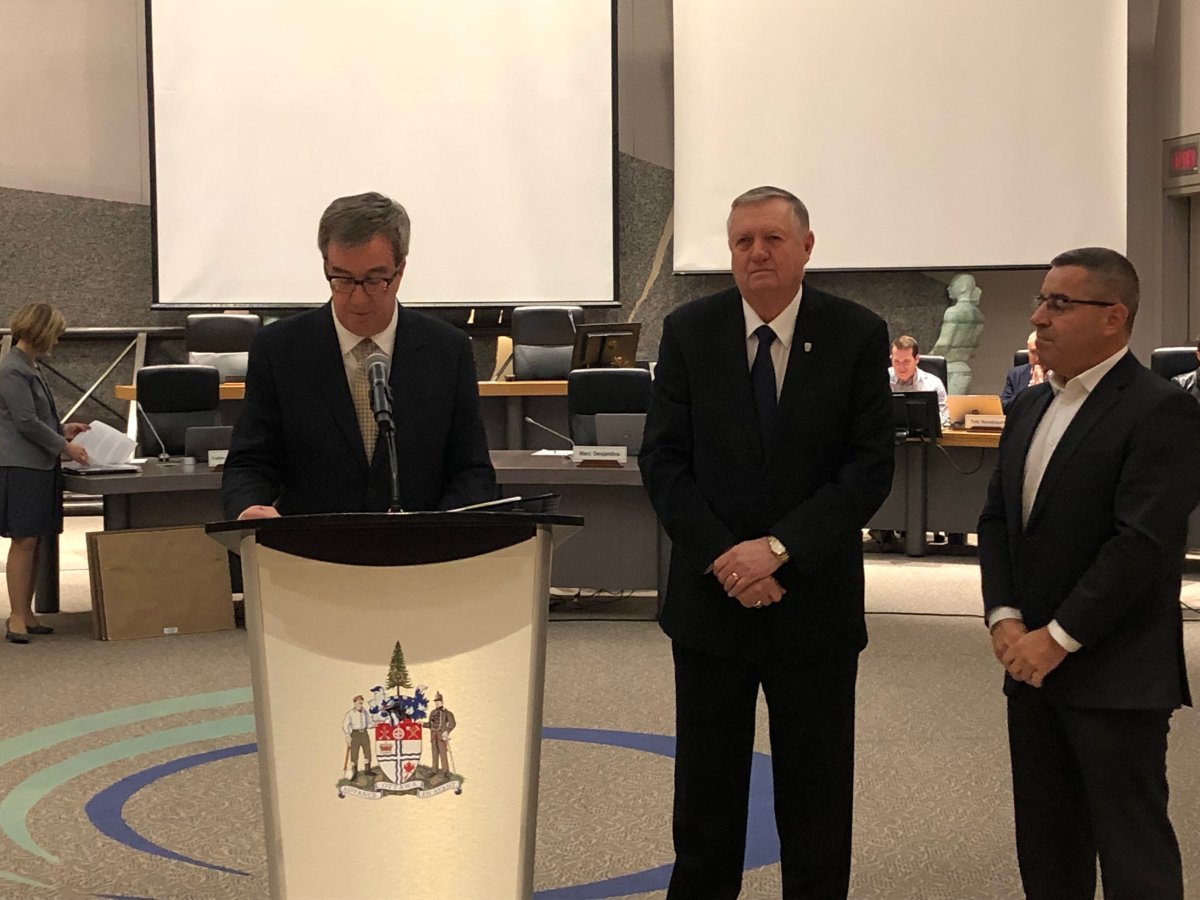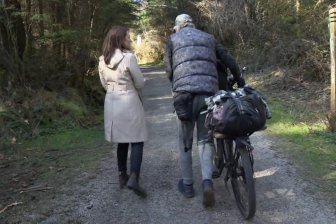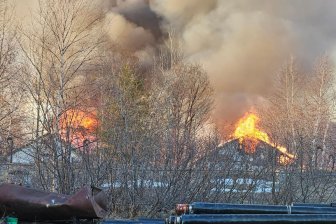Bob Monette was ready and set to run a fifth campaign for a city council seat, but decided in June it was time to leave politics after nearly 13 years at Ottawa City Hall.

Friday marked Monette’s last day on the job as councillor for Orléans, a ward in the city’s east end where he has lived for the last 40 years. Before his time at city hall, Monette – born and raised in Ottawa – served as a councillor in the former Cumberland township from 1985 to 1991.
After amalgamation, he was first elected to Ottawa City Hall in the 2006 Orléans byelection. Most recently, he served as one of Ottawa’s deputy mayors and sat on the audit committee, the finance and economic development committee and the transportation committee.
Global News sat down with Monette on Nov. 28, before the final city council meeting of the term.
This interview has been edited for length and clarity.
Q: How are you feeling today, before your last city council meeting?
A: I mean it’s special. I’ve had a long career in politics, 19 years… everything comes to an end. Today is going to be a bit sentimental but I don’t regret the decision. It’s the right decision to move forward.
Q: How did amalgamation change the nature of your job as a councillor?
A: Oh, drastically. Before amalgamation, it was a more hands-on approach. When I was in Cumberland township, I did not have staff, so basically everything I did, I did on my own. We had constituents come to your door and you deal with the issues … they’d be calling you at home. I had one constituency office for all the councillors, so it was very difficult. But it was more hands-on and the staff lived in the community and knew the community.
Q: Over the time you’ve served at Ottawa City Hall, what are you most proud of?
A: For city issues, I think my involvement with Lansdowne was something I will really cherish. It was a very difficult file, you had people who were strongly opposed to it and I always felt it was a right decision at the right time. I attended all the public meetings from one end of the city to the other end, spoke out… I’m pleased with what we have today.
Another city file is the Ottawa River Action Plan. As you know, direct sewage going into the rivers has been a problem for many years. In Ottawa, what we had seen in the sewage, E. coli spiked … to amounts … like something we had never seen. People were talking about: “Why is there raw sewage going into our Ottawa River?” From that time, we have had federal, provincial and municipal governments put in over $200 million to rectify that problem. This is a legacy that you’re leaving your children and you want a clean water system for your children. So that’s something I’m very proud of.
Petrie Island… I mean when I first started it was no service, none at Petrie Island. We were able to get services brought into Petrie Island, we were able to get a lifeguard facility as well as washrooms.
We have festivals now – we never had festivals in Orléans when I started in 2006. It’s creating an identity and social benefits, economic benefits for our community.
Q: What are some aspects of the job that surprised you or were more difficult than you anticipated?
A: I think when I first started, technology was a lot different in 2006 than it was in 1985, obviously. In 1985, 1988, we didn’t work with computers … I think technology was a big one. I think the bureaucracy was a lot more difficult to work with and I was very successful working with the bureaucracy but you always have to remove red tape. For a long time, it was easy for staff to come in my office and say: “No, you can’t do this or you can’t have this.” And I changed the mindset on that. Any staff or anybody who came to my office, I would tell them: “Do not tell me how I cannot do it, tell me how I can do it and what are the consequences of doing that.” By doing that, the bureaucracy and staff were then open to coming to the office with solutions. And once they tell me the consequences, sometimes I’d say: “Okay, I understand, we can’t do it.” But most times we were able to find something different by thinking outside the box.
Q: What were the family considerations that prompted your decision to retire from politics?
A: I had submitted my name again to run one more time. I think it was at the point … in April, I guess it was, we were down in Cuba, we had a trip me and my wife. And on the last day, she told me, she says: “Why don’t you pack it in?” I wasn’t ready to pack it in and she supported that. But it was, I guess, a couple of weeks into May … two or three days in a row I’d wake up in the middle of the night … it was around 3 in the morning and I just came to realize: “Why am I doing this? I’ve done everything I want to do.” Then I waited for my wife to wake up and mentioned it to her and she was very supportive, obviously. And from then on, we decided to move on. I don’t regret that decision. My family has supported me every election and they would have supported me if I would’ve run, but they also supported that it’s time to take time for the family.
Q: So you feel like you’re leaving any work unfinished?
A: No, definitely nothing unfinished. There are a couple of files that are coming up (and) I met with the incoming councillor. Light rail transit to Trim Road is going to be a very important file for our community. We have the funding in place, it needs to move forward. The marijuana legislation, that’s going to be a big issue coming forward. How will that affect kids? How close will the shops be to schools? How close will they be to recreational complexes?
Q: You’ve mentioned that you still plan to remain actively involved in the Orléans community. Are you able to say how you plan to do that?
A: No, not yet, because I don’t know! What I want to do right now is take two, three months off… family time sort of thing. Just slow down… you know, get up every second Wednesday of the month and watch council on TV, that will be my hobby. But no, I want to spend more time with my family and go on a trip or two. And then after that, what I have said is I’d be open to different opportunities. Whether that’s part time or … committee work, I’d be open to that.




Comments